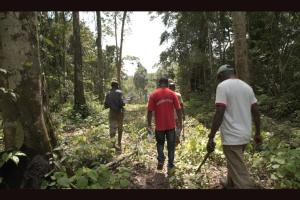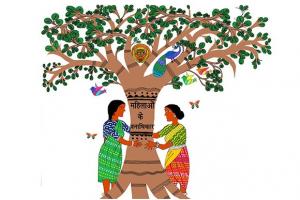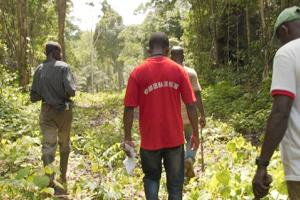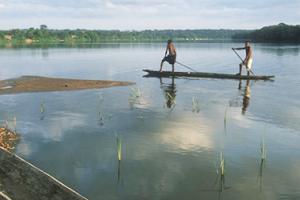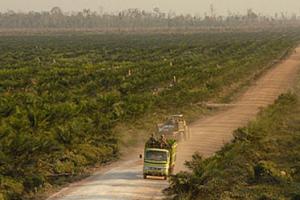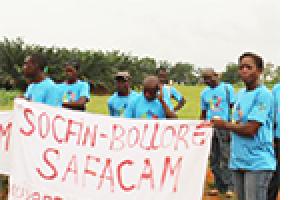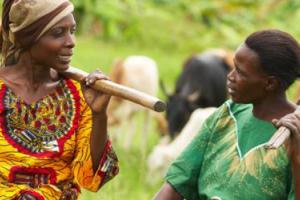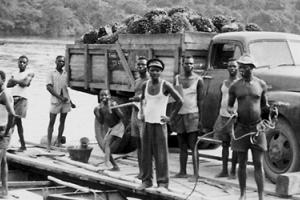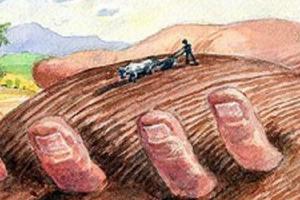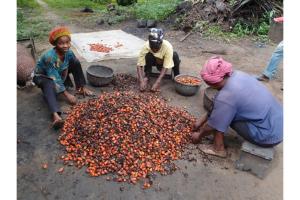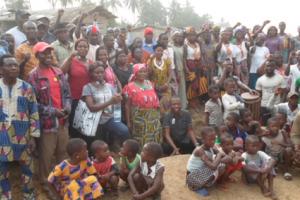Golden Veroleum Liberia (GVL), a palm oil company, holds hundreds of thousands hectares of land as an agricultural concession. GVL is now pushing to allow logging for export in its concession. Were the government to permit the sale of timber from the legal clearing of forest for oil palm concessions, it would simplify the laundering of illegal timber and dramatically increase the pressure on Liberia’s forests.
Large-Scale Tree Plantations
Industrial tree plantations are large-scale, intensively managed, even-aged monocultures, involving vast areas of fertile land under the control of plantation companies. Management of plantations involves the use of huge amounts of water as well as agrochemicals—which harm humans, and plants and animals in the plantations and surrounding areas.
Other information
30 August 2016
The Indian Parliament approved this July a passage from the Compensatory Afforestation Fund, better known as CAMPA Bill, which seeks to hand over large funds for promoting enormous “afforestation” plans; that is, monoculture tree plantations.
Other information
15 July 2016
Golden Veroleum Liberia (GVL), a palm oil company, holds hundreds of thousands hectares of land as an agricultural concession. GVL is now pushing to permit logging for export in its concession. International environmentalists are calling for a ban on the export of such timber to prevent the further destruction of rainforests.
Bulletin articles
13 July 2016
The Congo Basin in Central Africa contains the second largest forest in the world. Its extensive territory is shared by six countries: the Democratic Republic of Congo, the Republic of Congo, Gabon, Cameroon, the Central African Republic, and Equatorial Guinea. With this Bulletin we seek to explore in depth and report on the intense land-grabbing that people are confronted with and resist in this region—a forested area that houses and provides the livelihood and sustenance for around 30 million people.
Other information
13 July 2016
Bulletin articles
13 July 2016
Socapalm and Safacam are two companies controlled by Socfin, a multinational agribusiness specialized in the cultivation of oil palm and rubber. The group has financial and operating companies in Belgium, Luxembourg and Switzerland, which manage plantations in a dozen African and Asian companies. The group's aggressive expansion policy has led to land-grabbing, causing serious impacts on local communities' living conditions.
Bulletin articles
13 July 2016
The agricultural force on the continent
In Cameroon as in many African countries, women daily endure practices that could be considered discriminatory in various areas of society, and especially related to land ownership. “In our family, a woman is a good, like a house or a plantation,” said Léon Mba, leader of the Pamue Congress in 1949. (1)
Bulletin articles
13 July 2016
Oil palms are native to the forests of Central and West Africa and inseparable from the region’s peoples and their cultures. Communities in this part of the world have relied on oil palms for thousands of years— as a source of food, textiles, medicines and construction materials.
Other information
13 July 2016
A video produced by GRAIN shows how rural women in West Africa are working to protect traditional palm oil production in the face of the destructive expansion of industrial oil palm plantations.
Watch the video here.
Action alerts
9 June 2016
Dear friends, we ask for your support.
Our colleagues from the No2Bidco Campaign in Uganda and Kenya have contacted us to request support for their struggle against Bidco Africa. This multinational company -in a joint venture with Wilmar International- owns among others, the OPUL oil palm plantation and a palm oil refinery on the Lake Victoria island of Bugala, Uganda.
Other information
15 April 2016
Women, communities say NO to the expansion of oil palm plantations and industrial palm oil
